In our intro to this series, we established that the idea of inheritance has come under attack as of late. But Biblically, it’s supposed to happen; we’re supposed to gather all kinds of wonderful resources, then faithfully, purposefully, and generously hand them off to those who come after us. This is the plan. But how do we do it? I said before I was going to need to define some terms, which is exactly what I’ll do. Now.
I’ve been working my way through the book of Joshua lately and two things have stuck out to me. First, the phrase “be strong and courageous” is repeated over and over. Second, the entire book is about inheritance. Israel is stepping into the inheritance that was promised to them over 40 years prior, and the process of claiming that inheritance is more tense than a posthumous will-reading party with Great Uncle Alistair’s estate-planning attorney (NOBODY liked Alistair and we’re about to find out that he didn’t really care for the nephews either). Indeed, for God’s people, something about claiming their inheritance would require strength and courage. This is hint #1 that what we’re talking about here could not be a passive act, like discovering that you’ve been left some cash money. Again, claiming the kind of inheritance God intends requires some cojones in the family line. (I’ll leave it to you to figure out who’s supposed to train those into the descendants.)
I could (and likely will, in future articles) dive deeply into the individual accounts of the inheritance-claiming Israelites from the book of Joshua, but for now I want to point out that all of these stories reveal three key components of inheritance. We will use these three things to form our definition of Biblical inheritance.
1. Inheritance is always tied to identity
If you think back to one of our first articles, we caricatured a scene in which a young Jewish boy was scolded for his lack of care for the inheritance (in this case, land and the productive potential of that land) with which he had been entrusted.
That wasn’t all giggles and faux-yiddish names, gents, it was a reality of life amongst God’s people for many hundreds of years. In Joshua 14, we see that the tribes each received “an inheritance”, EXCEPT for one – the Levites. The scriptures say:
The Levites received no share of the land but only cities to live in, with pasturelands for their flocks and herds.
Now isn’t that interesting? They got “no inheritance”… but they got cities, pastures and livestock. Sounds like a considerable inheritance, don’t it?!? I mean, Joshua 21 is an entire chapter devoted to describing the cities that were to be set aside for the Levites OUT OF THE INHERITANCE of the rest of Israel. So inheritance can’t just be the stuff you get – otherwise the Levites would have to call their allotment an inheritance.
You see, while the Levites did get resources to provide for their needs, these resources were not to convey any identity for that tribe. THAT was different than the rest of the Israel tribes! The Levites’ identity was their priesthood to the LORD, full stop. For your average Israelite, on the other hand, their identity was absolutely tied to the productive resources with which they had been entrusted. Their entire day – from their labor to their worship to their family-building activities – was structured around the cultivation and expansion of their inheritance, which came from prior generations and, ultimately, directly from the LORD.
2. Inheritance is productive
I’m going to make a bold statement here but I’ve yet to find an example of it being wrong. There is not one mention in scripture of an inheritance that is an unproductive resource. What’s more, this is tied entirely to the previous attribute of inheritance – its unique ability to imbue identity.
For this point, let’s look at a contra-example. The story of the prodigal son begins with an insolent younger son who says to his Father, “give me my share of the estate”. That share would have been an ownership stake in a productive household. If this son had inherited his share of the estate along the normal timeline, he would have received not only the productive potential of his family’s fields, livestock, servants, etc. – he would have also been entirely responsible for squeezing the benefits out of those productive resources. Crops don’t grow themselves.
But instead the son said “give me my share of the estate”, and herein lies the biggest offense of the entire story. By demanding his share, he was not only asking for his father to allow him to run off and wild out for a few years, he was taking the multigenerational productive resources of the family and turning them into cash – to be used for consumption. I’d argue that this wasn’t an inheritance–at least, not like the father had intended. This was trading in the good and right model of inheritance for a consumable pile of money and, despite the great ending to this parable, we can be sure that this family would spend generations rebuilding the resources that were squandered away.
If the idea of trading in an identity-laden resource that will produce endlessly for a pile of money that will probably just be blown on short-term, self-gratifying consumption sounds pretty familiar… well it should: That’s the modern model of inheritance. It’s also the exact reason we struggle to think it wisdom to leave assets behind when we die. The cautionary tale of the prodigal son should teach us many things, but one of them is that inheritance is productive, by golly. When a pile of money without any responsibility or identity tied to it gets handed over, we’re in for a bad ride.
3. Inheritance always requires claiming, persistence and/or cultivating
If we’re using the book of Joshua as the story of the first big inheritance, it’s safe to say that Israel was not a passive recipient of the land they had been promised. Au contraire. There were–count ‘em!–fourteen major battles in the process of moving into the promised land (and of course, many previous generations of faithfulness and failure that led them to that point). Heck, when one random Israelite decided to disobey the LORD’s commands regarding how to deal with plunder by burying a couple of trinkets under his tent, the whole show stopped until his disobedience could be rooted out and dealt with. So God was very serious about seeing the inheritance claimed in exacting fashion, and He was not about to hand it over flippantly.
Once Israel claims their inheritance, which came at the cost of lives, they were told that it would require persistence. In his final speech to the nation, an elderly Joshua told Israel that if they begin to intermarry with the peoples around them, or if they start speaking the names of their enemies’ gods, what they had received would be taken away from them. Israel’s inheritance would require faithful persistence, guarding, and hard work to protect.
And if we zoom into the family level, it’s quite evident that inheritance in this time was the passing down not only of resources but also of a responsibility to cultivate. If you receive a field, get ready to do some plowing. The assets that each Israeli household were building up and passing along required cultivation. Only in times of total disaster (or prodigal shenanigans) would those identity-laden, productive resources be cashed out for money that could be simply spent.
Before ending part 2 with a clever cliffhanger line, I want to add one more point here. Let’s say you’re single, or broke, or for some reason this inheritance talk sounds miles away from your current reality trying to make family and/or finances work right now. Why should you care about this?
Fair question. But this understanding of inheritance was taken as a given not only for Jews of 4000 years ago, but also for the Jews who wrote the New Testament. Without a proper understanding of the concept, we’ll miss some of the most commonly recurring teachings in Paul’s letters, for example:
In him we have obtained an inheritance, having been predestined according to the purpose of Him Who works all things according to the counsel of His will, so that we who were the first to hope in Christ might be to the praise of His glory. In Him you also, when you heard the word of Truth, the gospel of your salvation, and believed in Him, were sealed with the promised Holy Spirit, Who is the guarantee of our inheritance until we acquire possession of it, to the praise of His glory.
Ephesians 1:11-14
See how there’s a persistence and claiming involved there? See how our inheritance is productive? Paul gets all that for free when he’s talking to a Jewish audience, but for us it’s easy to miss. If you need more convincing, check out Colossians 3, Romans 8, Galatians 5, etc.
Now, we culturally relevant Christian-types have a tendency to snag such New Testament passages that take a deeply ingrained Jewish principle and use it to illustrate a reality in the Kingdom, and assume that they are declaring the old system and wisdom to be done with. Don’t do that. Inheritance is not a purely spiritual concept and we should also be thinking about physical inheritance as family building fellas. What happens when we get that assignment wrong and just assume we’ll dump money on our kids? Well you’ll have to head over to part 3 to get those delightful cultural horror stories (cliffhanger promised and delivered, see ya!).
*Mark Parrett is one of the founders of Abraham’s Wallet. When not blogging for you here, he’s raising a family in Salt Lake City, UT and working as a financial planner at Outpost Advisors.






